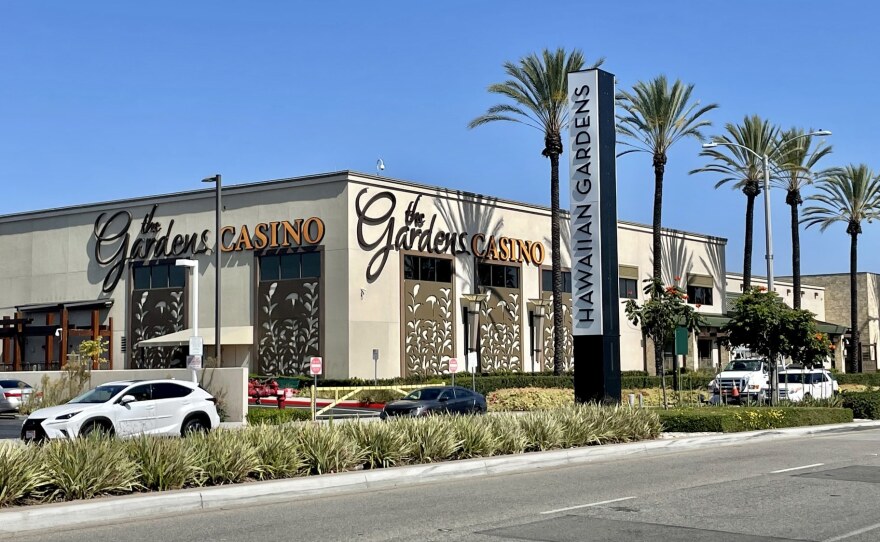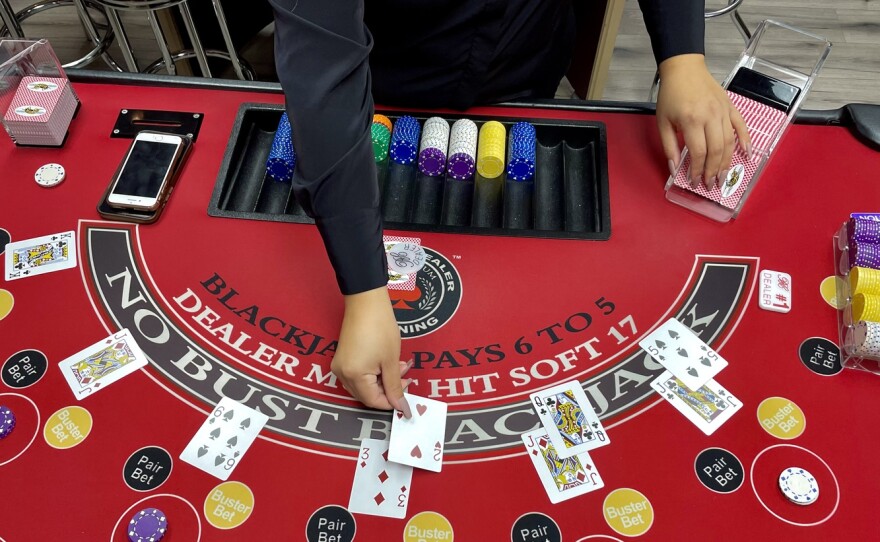Proposition 26, on California’s November ballot, would legalize sports betting at tribal casinos and at the state's four privately owned racetracks. It would also add a new way to enforce state gambling law in card rooms. Who supports it? Who doesn’t? And why? Here are answers to some basic questions on Prop 26.
Who’s in favor?
Sports betting is not legal now in tribal casinos, but one quarter of California’s Indian tribes support the proposition. They say expanding gambling will further increase their self-sufficiency, including their ability to support non-gaming tribes and the local governments where their casinos are located. This expansion of gambling in California has the potential to bring tens of millions of dollars in state funding, according to the nonpartisan Legislative Analyst Office.
Who’s not?
Card rooms and the cities where they’re located are opposed to the proposition because of a legal provision in the new law that would allow anyone – including tribes – to sue them if they operate more like a casino than a card room.
Card room operators say if it passes, it could be used to put them out of business and hit cities that rely on them for their bottom line.
Wait, what’s the difference between a casino and a card room?
In card rooms, patrons play cards for money, but don’t bet against the house like at casinos in Las Vegas. Instead, card rooms hire third-party professionals to sit behind chips at each table and act as the bank.
Tribal casinos have long challenged this practice. They maintain that it isn’t legal because state law gives tribal casinos the exclusive right to Vegas-style gambling. Tribes have tried to take card rooms to court over their use of third-party bankers, but those lawsuits never went anywhere.
The new enforcement measure in Proposition 26 would allow anyone, including tribes, to sue card rooms over third-party banking.

Why are some cities in California concerned about Proposition 26?
The cities where card rooms are located collect a lot of taxes and fees from these establishments. There are 78 cities in the state that rely heavily on this revenue to sustain their budgets, including five in Los Angeles County: Bell Gardens, Commerce, Compton, Cudahy and Hawaiian Gardens.
The smallest city in the county, Hawaiian Gardens, gets over 70% of its revenue from the local card room. “That card room is the economic engine that makes our city run,” says Shavon Moore Cage, assistant to the mayor of Hawaiian Gardens.
These small cities have joined card rooms in opposition to Proposition 26.
Card rooms say they will face frivolous civil lawsuits if the proposition passes. Is this true?
Tribes say their goal with any lawsuit against a card room is to ensure the law is being followed, and to settle the contentious debate over how card rooms operate. Card rooms say this will be abused and put them, tribal casino’s biggest competitors, out of business.
Voters are being asked to choose sides. A “yes” vote means anyone, including tribes, can sue cardrooms, and tribes can have betting on sports at their casinos. A “no” vote leaves things exactly the way they are.
How is the public responding to the campaign for Proposition 26?
Voter support is polling low just weeks from election day. Proposition 26 has a 31% approval rating, according to a UC Berkeley IGS poll conducted in late September. Proposition 27, which would legalize online sports betting in the state, is at 27%.
That’s right, there’s another gambling proposition on the ballot.
Proposition 27 allows sports gambling online in California. That one has nothing to do with card rooms.
The low poll numbers suggest that voters are confused by the two competing measures. With record level campaign spending on both, voters have been bombarded by television ads, some of which has been misleading. “And when you've got that, voters tend to just say no,” says Kathy Fairbanks of the Yes on 26, No on 27 campaign.
But because sports betting has the potential to be enormously lucrative, even if both fail, the issue isn’t going anyway. There’s already talk of a proposition for 2024.
These stories are made possible as part of The California Newsroom — a collaboration of California’s public radio stations, NPR and CalMatters.





